News
4-3 vote sinks efforts to stop more Lick Creek development
Environmental, Neuse River Watershed, Sound Rivers, Water Quality
Posted on November 9th, 2023
Where Martin Branch and Lick Creek meet in Durham.
Durham’s City Council voted Monday night to approve a proposal to develop the largest remaining private forested parcel along Lick Creek.
Despite efforts from the community — including more than 1,600 emails sent to council members through Sound Rivers’ Action Alert — the council voted 4-3 to rezone the land for Perry Farms and its proposed 655 homes. Another 17 area residents and Neuse Riverkeeper Samantha Krop spoke against the proposal at the public hearing before the vote.
“One of the pushbacks that we get from council is that it’s the same people showing up again and again to oppose these developments. No. 1: it’s the locals who will be impacted that are showing up; and two, these meetings are not accessible. This was a public hearing at midnight, the night before a municipal election. This was done in the dark of night, and I’m not OK with that,” Sam said.
The public hearing was the last item on the Durham City Council’s agenda.
For more than a year, Sam has visited this site and others in the Lick Creek watershed to conduct bi-weekly water-quality sampling. In that time, she has documented extreme sediment pollution from developments, including streams and creeks running red with the fine clay soil destabilized by land-clearing.
“I have documented sediment polluting the stream, settling on the bottom of the stream channel and a lack of aquatic diversity as a result of sediment pollution,” Sam said. “The forestland in this parcel contains mature hardwood forest, floodplain, wetlands and 11 tributaries of Lick Creek. It contains federally listed endangered species and endangered plant communities.”
Lick Creek is a tributary of Falls Lake, a drinking water source for half a million Raleigh-area residents. In September, Sound Rivers and the Southern Environmental Law Center filed suit against another developer in an effort to stop sediment pollution of another Lick Creek tributary, Martin Branch. Sam, in coalition with local community members, organized to oppose more rezoning that will intensify pollution of an already impaired waterway.
“The 4-3 slim majority vote in favor of the development is an all too familiar margin in Durham City Council,” Sam said. “We are crestfallen, but will continue to fight. It will take an upswell of intersectional advocacy to push back against the senseless sprawl — the sacrificing of our remaining forestlands and waterways to fractured, overpriced, polluting subdivisions. Above all, we must insist that we can have clean water and housing. It’s going to be a long-haul fight to get there.”
Sam said the next step is to increase engagement even more: “We’re going to grow our numbers and come back stronger.”
Related News
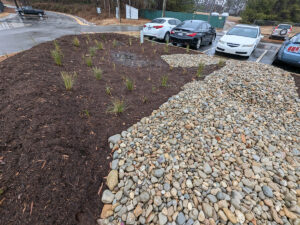
Nash stormwater control measures get rain-tested
January 9th 2025

2nd fuel spill prompts local partnership discussion
January 9th 2025
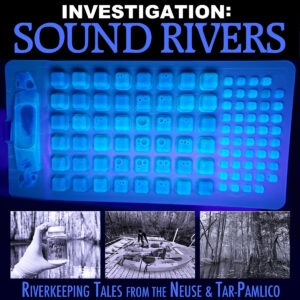
New podcast episode: 'Investigation: Sound Rivers'
January 9th 2025

Welcome 2025!
January 2nd 2025

Welcoming the new year with a recap of 2024!
December 27th 2024
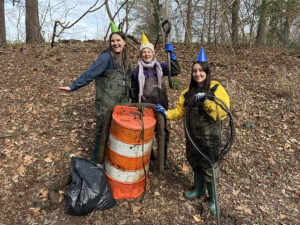
Trash traps get holiday cleanouts!
December 19th 2024
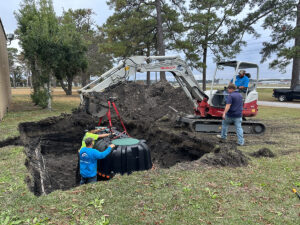
Underground cistern a first for Sound Rivers
December 19th 2024
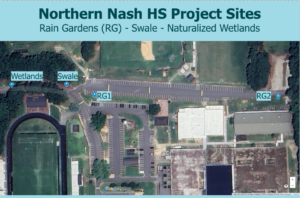
Campus Stormwater takes on Northern Nash
December 19th 2024

